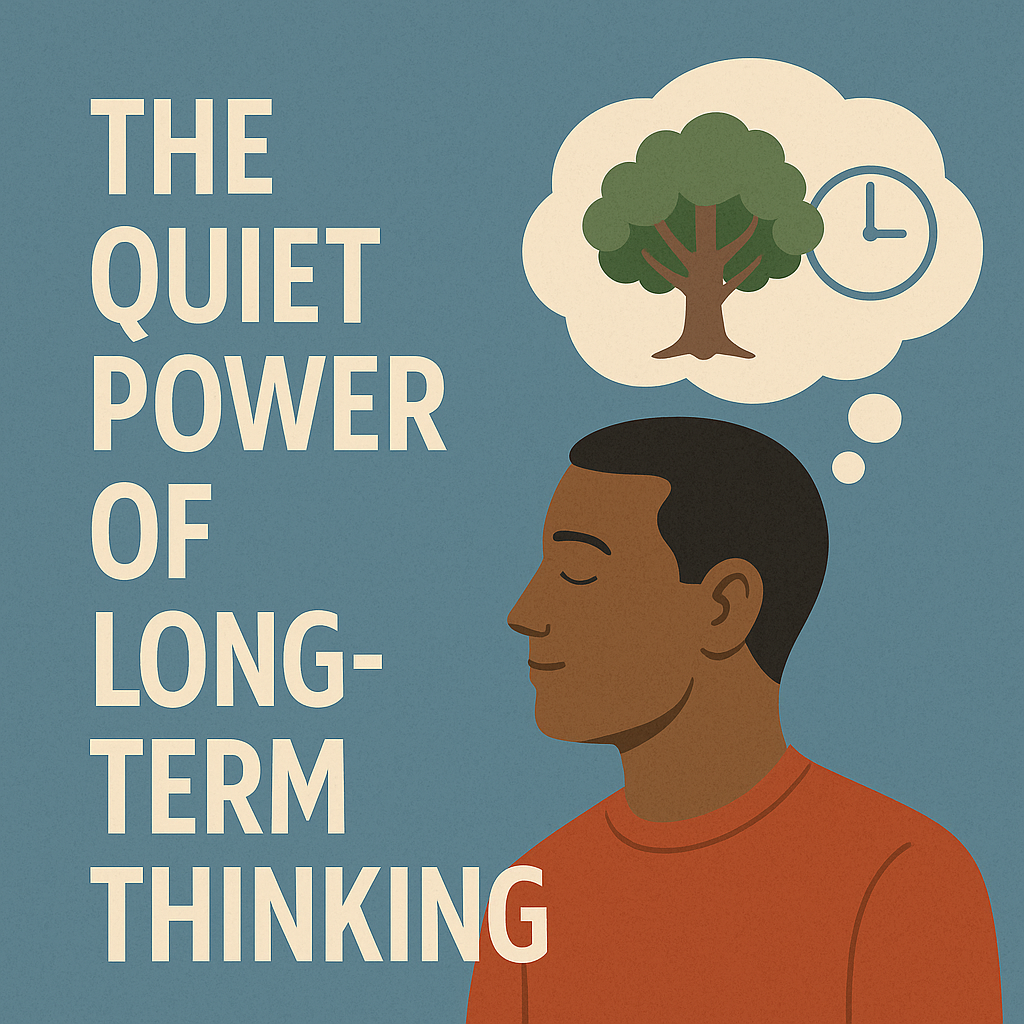
|
Getting your Trinity Audio player ready...
|
In today’s world, long-term thinking is a quiet superpower—often overlooked, but deeply transformative. We’re living in an age dominated by immediacy. Likes, clicks, quick profits, overnight success—these are the currencies of modern culture. But beneath the surface of that noise lies a truth few people embrace: the most meaningful progress often happens over years, not days.
🧠 What Is Long-Term Thinking?
Long-term thinking is the ability to look beyond the present moment and make decisions today that will benefit you in the future—five, ten, or even twenty years from now. It’s not just about financial investments. It’s about how you approach your health, your habits, your relationships, and even your character.
Think of it like planting a tree. The effort may seem small or invisible at first, but with time, care, and consistency, the roots deepen, the branches grow, and eventually, it provides shade and fruit—not just for you, but possibly for others too.
Why Is It Rare?
Modern systems are built to reward urgency. We check our phones over 90 times a day. We want fast returns on investments, shortcuts to success, and quick-fix diets. Most media platforms, businesses, and even educational systems are engineered to deliver instant results.
Long-term thinking, by contrast, demands patience, discipline, and a tolerance for delayed gratification. It’s not glamorous. There’s no instant applause for eating healthy today or reading a book that may shift your mindset over time. But it’s precisely this kind of thinking that separates lasting success from fleeting hype.

Areas Where Long-Term Thinking Pays Off
1. Health
Fast food satisfies a craving; long-term wellness requires consistent choices. Exercise, sleep, and a balanced diet don’t pay off overnight—but they shape your energy, clarity, and lifespan over decades.
2. Habits
Daily routines compound. A person who writes 300 words a day ends up with a book in a year. Small, positive habits—when practiced consistently—can radically reshape your future.
3. Relationships
Surface-level connections can be easy to make, but deep, trust-filled relationships take years of investment, vulnerability, and shared growth. Nurturing these is one of the most powerful long-term decisions you can make.
4. Money
The principle of compound interest—famously called the “eighth wonder of the world” by Einstein—is a perfect metaphor for long-term thinking. Saving, investing, and financial literacy don’t feel urgent in your 20s, but they define your freedom in your 50s.
5. Self-Development
Skills take time to master. A growth mindset, emotional intelligence, and critical thinking are built brick by brick through reading, reflection, and real-world learning. You’re not just preparing for today’s problems—you’re shaping the version of yourself who will face tomorrow’s.
How to Cultivate Long-Term Thinking
Ask the 5–10 Year Question: Before making decisions, ask: “Will this benefit me in five years? Ten?”
Delay Gratification: Practice saying no to short-term pleasure if it compromises long-term gain.
Set Legacy Goals: Think beyond achievements and ask what kind of impact or story you want to leave behind.
Track Progress, Not Perfection: Keep journals or logs of long-term goals to remind yourself how far you’ve come.
Surround Yourself with Future-Focused People: Mindsets are contagious. Be around those who value growth over quick wins.

The world may chase speed, but strength is often built slowly. Long-term thinking may not get you trending today—but it will build the kind of life worth living tomorrow. In a world of quick hits, it’s a quiet act of rebellion—and a powerful one.
